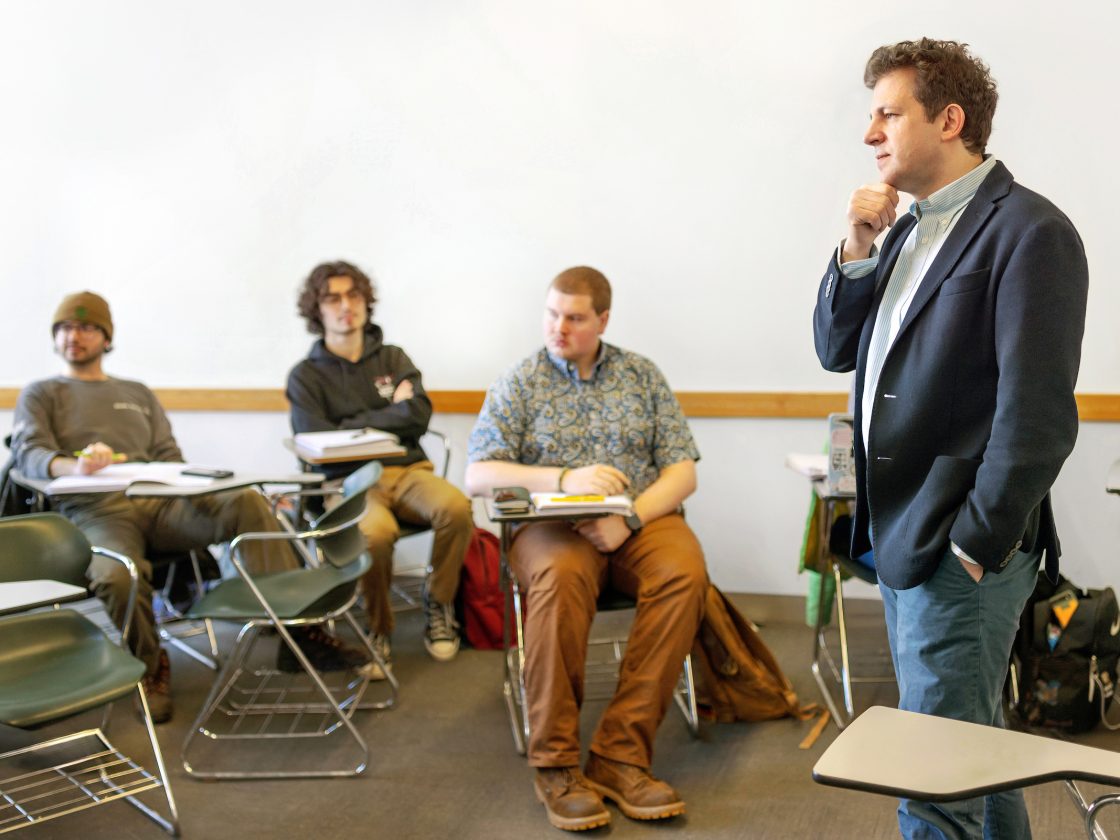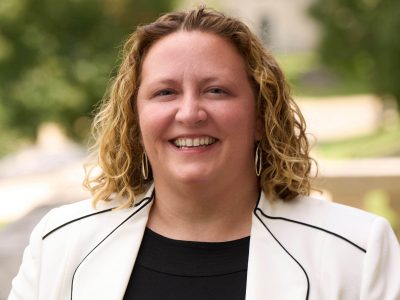
Associate Professor Johannes Himmelreich speaks to students about artificial intelligence.
New AI Policy Minor to Grapple With Analytical, Ethical Questions
As artificial intelligence (AI) transforms every sector of society—from health care and education to national security and environmental policy—the demand for individuals who understand both the technical and policy dimensions of the emerging technology has never been greater. To address this need, the Maxwell School of Citizenship and Public Affairs has launched a new interdisciplinary minor in AI policy.
Led by Johannes Himmelreich, associate professor of public administration and international affairs, the 18-credit AI policy minor enrolled its first students this fall. It introduces students to the challenges inherent in analyzing complex policy problems, understanding strategies to govern emerging technologies and building AI tools that serve the public good.
Students gain foundational knowledge in both AI systems and policy analysis, develop practical quantitative skills for evidence-based policymaking and explore how AI intersects with critical policy areas, including poverty, criminal justice, environmental policy and international affairs.
“The AI technological revolution is affecting every field, including public policy and adjacent industries,” says Himmelreich. “This minor equips students with the knowledge and analytical skills needed to shape how AI is developed, governed and deployed in the public interest.”
The program brings together Maxwell’s strengths in public affairs with technical training offered through courses in the College of Engineering and Computer Science and the School of Information Studies. It is open to undergraduates from across the University’s 13 schools and colleges and especially complementary to majors such as information studies, political science and computer science.
Himmelreich is a senior research associate for the Campbell Public Affairs Institute. His work focuses on the ethics and policy of using AI for government and within public spaces, such as in drones, self-driving cars or in the administration of social benefit systems. He is co-editor of “The Oxford Handbook of AI Governance” (Oxford University Press, 2024), which examines the challenges and opportunities at the intersection of AI and governance. With the support of a two-year grant from the National Endowment for the Humanities, he is working on a book about the philosophy and ethics of data science and good decision-making.
In addition to Himmelreich, courses in the minor will be taught by a team of scholars in the field, including Baobao Zhang, Maxwell Dean Associate Professor of the Politics of AI and co-editor of the “Oxford Handbook of AI Governance.” Earlier this year, she received a National Science Foundation Faculty Early Career Development Award for $567,491 to support her research project “Future of Generative Artificial Intelligence for Current and Future Workers.”
Other faculty experts supporting the minor include University Professor Hamid Ekbia and Jack Reilly, associate teaching professor of public administration and international affairs.
“This minor will most certainly enhance career opportunities in public sector data science and AI roles,” says Himmelreich. “As governments at all levels increasingly leverage AI technologies, we’re preparing students to lead with both technical competence and ethical awareness.”
For more information about the program, including course requirements and application procedures, visit the Maxwell School website.


